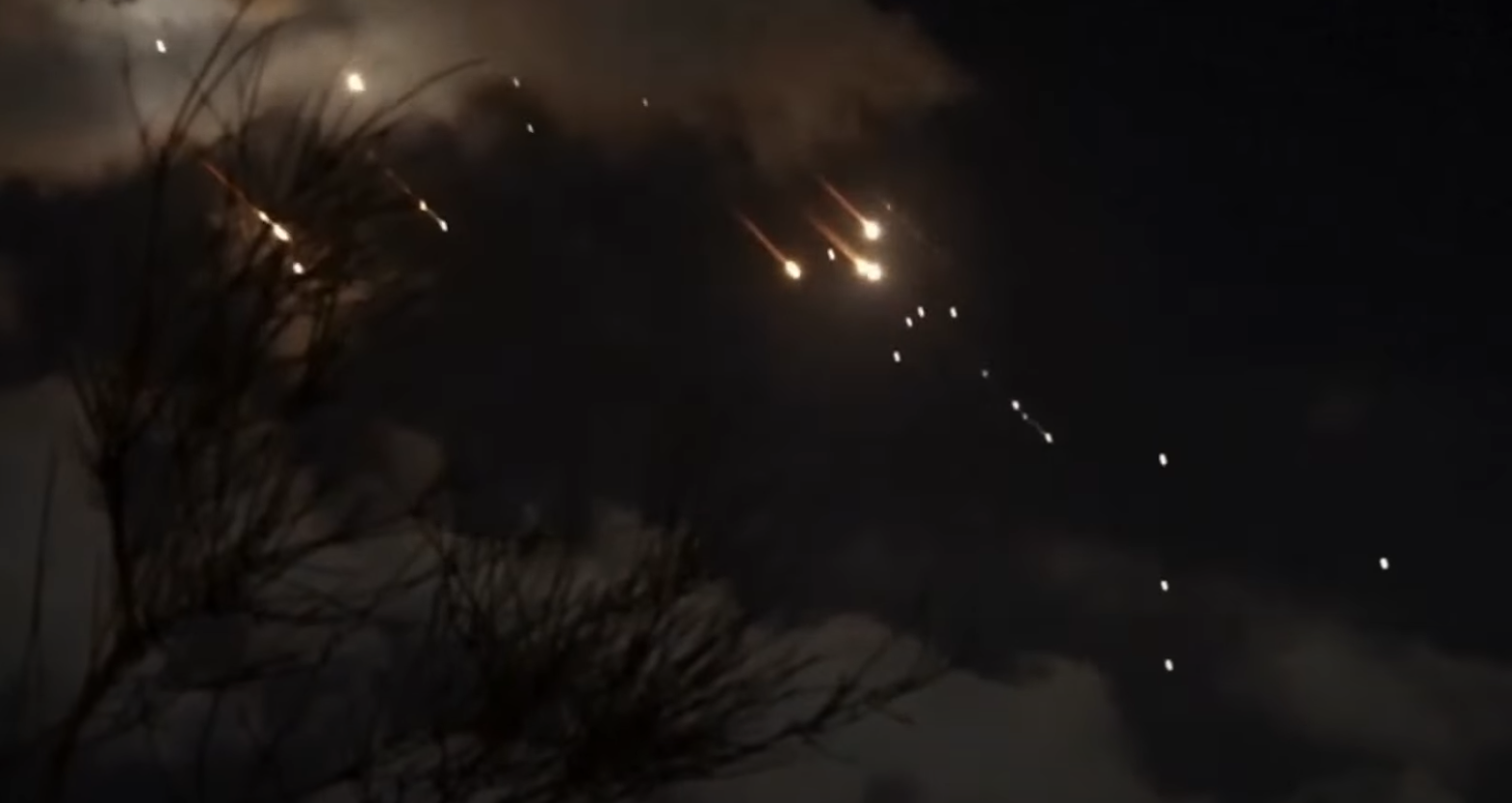Iran said its missile attack was aimed specifically at three Israeli military bases, with an 80 percent hit target.
Iran has launched a barrage of ballistic missiles against Israel, in retaliation to the assassinations of the leaders of Hezbollah and Hamas, its Islamic Revolutionary Guards Corps said.
The sky was lit up by Iran’s missiles on Tuesday night, causing mass panic among Israelis who rushed to bomb shelters as alarms sounded across Israeli settlements, towns and cities.
Last week, Israel attacked the southern suburb of Beirut with a series of bunker-buster bombs, killing Hezbollah chief Hassan Nasrallah, the Islamic Revolutionary Guards Corps commander Abbas Nilforoushan, and several other prominent Hezbollah leaders.
On July 31, Hamas political head Ismail Haniyeh was also assassinated in an Israeli air strike in the Iranian capital as he attended the inauguration of President Masoud Pezeshkian.
“In response to the martyrdom of Ismail Haniyeh, Hassan Nasrallah and Nilforoushan, we targeted the heart of the occupied territories,” the IRGC said in a statement.
The IRGC also said that the attack was aimed specifically at three Israeli military bases, with Iran’s state television claiming that 80 percent of their missiles launched hit their targets.
For their part, the Israel military said a “large number” of the ballistic missiles had been intercepted.
As a result of the missile attack, shrapnel also fell in several Jordanian provinces, including the capital Amman, Balqa, Zarqa, Madaba, and Karak.
In a statement, the Royal Jordanian Air Force said its air defence systems “responded to a number of missiles and drones that entered Jordanian airspace”.
As a result of the escalation between Israel and Iran on Tuesday night, several neighbouring countries temporarily closed their airspaces, including Lebanon, Jordan, and Iraq.
Gulf airlines Kuwait Airways and Etihad Airways also announced they would change their routes to navigate the regional clash.
UN, EU condemnation
The United Nations Security Council is expected to hold an emergency meeting on Wednesday to discuss the escalation of the regional conflict.
UN Secretary-General Antonio Guterres has denounced the missile attacks and called for a ceasefire.
“I condemn the broadening of the Middle East conflict with escalation after escalation. This must stop. We absolutely need a ceasefire,” Guterres said on X.
Similarly, the European Union’s Foreign Policy Chief Josep Borrell condemned “in the strongest terms” the Iran attacks.
“The dangerous cycle of attacks and retaliation risks to spiralling out of control,” he wrote on X.
“An immediate ceasefire across the region is needed. The EU remains fully committed to contribute to avert a regional war,” he added.
Israeli attacks in Gaza and Lebanon continue
As Israel’s ongoing war in the Gaza Strip – widely referred to as a genocide – approaches its first anniversary on Monday, more than 30 people, including women and children, were killed during a ground assault by Israeli forces in the southern city of Khan Younis.
In Lebanon, Israeli forces attempted to infiltrate the town of Odaisseh in the south of the country as they began a self-described “localised, limited” ground invasion.
According to Hezbollah however, the forces were rebuffed by the Lebanese movement.
Israeli army spokesman Avichay Adraee released a statement in Arabic warning people in 24 southern Lebanon villages to “evacuate their homes immediately”.
“Anyone who is near Hezbollah elements, installations, and combat equipment is putting his life at risk. Any house used by Hezbollah for its military needs is expected to be targeted,” he said in a post on X.







